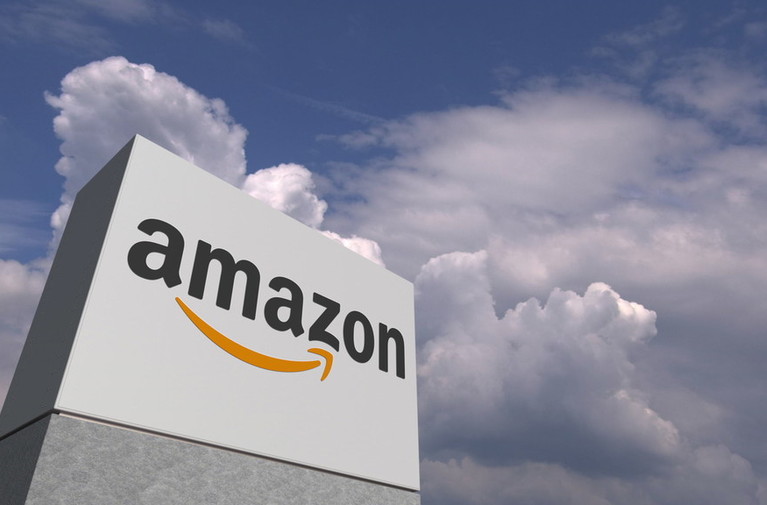‘Amazon Delivered a Loaded Gun’: Washington State Supreme Court Eyes Online Retailer’s Alleged Role in Chemical Suicides
In a courtroom packed with tension and tragedy, the Washington State Supreme Court grappled with a chilling question: Can Amazon be held liable for delivering a lethal chemical straight to the doorsteps of vulnerable individuals? Families of 28 suicide victims argue the e-commerce giant knowingly fueled these deaths by selling industrial-grade sodium nitrite, a substance dubbed “suicide powder” in online forums.
This high-stakes hearing on September 9, 2025, spotlights Amazon’s responsibility in product liability, negligence claims, chemical suicide prevention, and Washington e-commerce laws. As justices probe the retailer’s algorithms and policies, the case could redefine online seller duties, with ripple effects for consumer safety nationwide.
The Tragic Backstory: Sodium Nitrite and a Surge in Suicides
Sodium nitrite, a white powder used as a meat preservative in food processing, turns deadly when ingested in high concentrations—causing rapid oxygen deprivation and organ failure. While legal for industrial use, 99% pure versions have no household application and have been glamorized on pro-suicide websites as a “peaceful” method.
The crisis escalated post-2018, when online forums popularized it, leading to a documented spike in such deaths. A National Institutes of Health study flagged it as an “emerging trend” in suicides, particularly among teens and young adults aged 15 to 42. By 2022, Amazon had sold thousands of pounds, often bundled with anti-emetic drugs to counter vomiting—a telltale sign of intent.
Enter the plaintiffs: Families like Ruth Scott’s, whose Texas son ordered the chemical via Amazon just before his 2021 death. Scott’s lawsuit, filed in King County Superior Court in 2022, ignited a wave of 10 cases representing 28 victims. Six trial judges denied Amazon’s dismissal motions, but a state appeals court reversed in November 2024, citing outdated precedents on suicide liability. The Supreme Court stepped in, consolidating appeals for oral arguments.
Washington’s “Tyler’s Law,” signed in April 2025, now bans sales of concentrations over 10% to non-commercial buyers—honoring 15-year-old Tyler Schmidt, who died weeks after an Amazon delivery. Yet families say it’s too late for their loved ones.
Oral Arguments: A Fiery Clash Over ‘Loaded Guns’ and Legal Duties
The September 9 session in Olympia crackled with debate. Plaintiffs’ attorney Philip Talmadge of Talmadge/Fitzpatrick likened Amazon to a gun dealer handing out “loaded guns” without checks. He hammered home that Amazon’s algorithms recommended suicide manuals and emetics alongside sodium nitrite, creating a “suicide kit” delivered in 24 hours.
“This product is invariably fatal at industrial-strength levels,” Talmadge urged, arguing negligence and Washington Consumer Protection Act violations. He contended suicide precedents don’t shield sellers who promote foreseeable misuse, especially when Amazon ignored internal warnings since 2018.
Amazon’s counsel, Andrew M. McNamara of Kirkland & Ellis, fired back: State law bars recovery for intentional self-harm, and no duty exists to “screen out suicidal consumers.” He stressed the chemical’s legitimate uses and Amazon’s 2022 voluntary ban, insisting plaintiffs’ claims contradict “clearly established principles.”
Justices, including Sheryl Gordon McCloud, pressed both sides. McCloud questioned if everyday items like razors could trigger endless liability, while others zeroed in on Amazon’s “product promotion” via recommendations. No ruling emerged; the case is under submission, with a decision expected in months.
Key Developments and Broader Litigation Landscape
This isn’t isolated. A parallel Ninth Circuit case on class certification mirrors the issues, with judges torn on deferring to Washington precedents. C.A. Goldberg PLLC, leading the suits, has woven a “devastating patchwork” of victim stories, from teens to adults, all linked by Amazon’s platform.
Amazon’s response? A statement expressing condolences and commitment to safety, but no admission of fault. The company banned the chemical in 2022 amid scrutiny, yet families allege it ignored years of red flags.
Expert Opinions and Public Outcry
Legal eagles see a potential sea change. “This could update product liability for the digital age,” says a toxic tort specialist, noting Amazon’s market dominance amplifies duties. Plaintiffs’ co-counsel C.A. Goldberg decries Amazon’s “failure to protect vulnerable kids,” urging courts to reject “outdated” suicide immunities.
Public fury boils over on social media and op-eds. Hashtags like #HoldAmazonAccountable trend, with survivors’ advocates blasting the retailer for prioritizing profits over lives. One parent lamented, “You shouldn’t be able to have a suicide chemical delivered to your doorstep within 24 hours.” Mental health groups, including the 988 Lifeline, highlight the case’s role in destigmatizing prevention.
Amazon defenders, including some business lobbies, warn of overreach stifling e-commerce.
Impacts on U.S. Readers: From Economy to Everyday Safety
For Americans, this hits the wallet and conscience. E-commerce drives $1 trillion in annual U.S. sales, but heightened liabilities could spike prices or slow deliveries as platforms vet products. Washington’s ruling might inspire federal probes, echoing Roundup lawsuits against Bayer.
Lifestyle shifts loom: Stricter online chemical sales protect families but burden hobbyists. Politically, it fuels bipartisan pushes for tech accountability, tying into data privacy and AI ethics debates. Technologically, algorithms face scrutiny—Amazon’s recommendations could set precedents for TikTok or Meta.
In sports and wellness, it underscores mental health: Suicide rates, up 30% since 2000, demand better access to help, not hurdles to harm.
Conclusion: A Defining Moment for Digital Accountability
The Washington Supreme Court’s review of Amazon’s role in these chemical suicides boils down to one core tension: Does the law’s shield for sellers extend to a platform that allegedly marketed death? Families seek justice beyond condolences, pushing for a reckoning on product liability, negligence in e-commerce, chemical suicide prevention, and Washington online retail regulations.
A favorable ruling could revive suits, force industry reforms, and save lives—potentially influencing national policy. As deliberations continue, resources like the 988 Suicide & Crisis Lifeline stand ready. For U.S. consumers, this case is a stark reminder: Convenience carries consequences, and vigilance starts with us.
(Word count: 912)
SEO tags: Amazon chemical suicides, Washington Supreme Court Amazon, sodium nitrite lawsuit, product liability Amazon, suicide prevention e-commerce, Tyler’s Law Washington, Amazon negligence claims, online retailer liability, chemical suicide cases, Washington e-commerce laws
